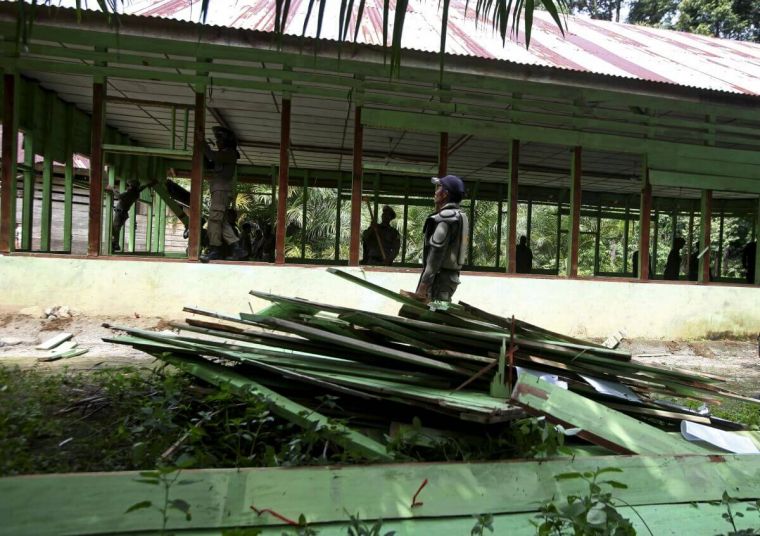'We're Keeping Our Spirits High': Indonesian Christians Still Worshiping A Year After Churches Destroyed By Islamic Extremists

Christians are still gathering for worship in Aceh Singkil – an Indonesian province ruled under Sharia law – more than a year after churches there were destroyed by Islamic extremists and police, according to World Watch Monitor (WWM).
The churches – which have still not been rebuilt because of what WWM said was "discrimination against Christians" – were razed in October 2015 following clashes between Muslims and Christians in a separate part of Indonesia.
Some churches were destroyed by extremists and others demolished by police following demands from residents that all unregistered churches be destroyed. Imams have reportedly ordered the torching of churches, and Christians have been targeted by mob violence.
WWM said that of 11 churches demolished last year, the members of six continue to meet in tents, while the rest have joined other churches.
However, many Christians live in fear of violence, according to the organisation. "The perpetrators live in the neighbourhood and they always watch my church members' activities," said one local Christian whose church is experiencing rapid growth.
Another local church member added: "I'm sad that we have to worship in tents in the middle of a palm-oil plantation. But we're keeping our spirits high."
Members of the churches fear that the authorities – who allow them to meet in the temporary structures – are reluctant to grant them planning permission because it would not be popular with Aceh's mainly Muslim voters in the run-up to local elections in February 2017.
WWM said that all local churches that were not destroyed must become licensed using a slow registration process that churches fear will not be prioritised during election campaigning.
A law was implemented in Indonesia about a decade ago, supposedly with the aim of promoting religious harmony. However, in practice it requires non-Muslims to obtain 60 signatures from people of a different faith as well as permission from the local authority before they can build a place of worship.
One local Christian activist told World Watch Monitor that it is already too late to expect building permits to be issued by the authorities now that candidates have started registering for the election. The activist's church was burned down last year and services are now held in tents in the nearby woods. "Even this also requires a permit, denied by the government to many hundreds more on security grounds," WWM said.
Berutu, a member of Pakpak Dairi Christian Church in the village of Pertabas, said: "The government is afraid of pressures from Muslim clerics and extremists. When they gave instructions to knock down our church, they were no longer our protectors."











